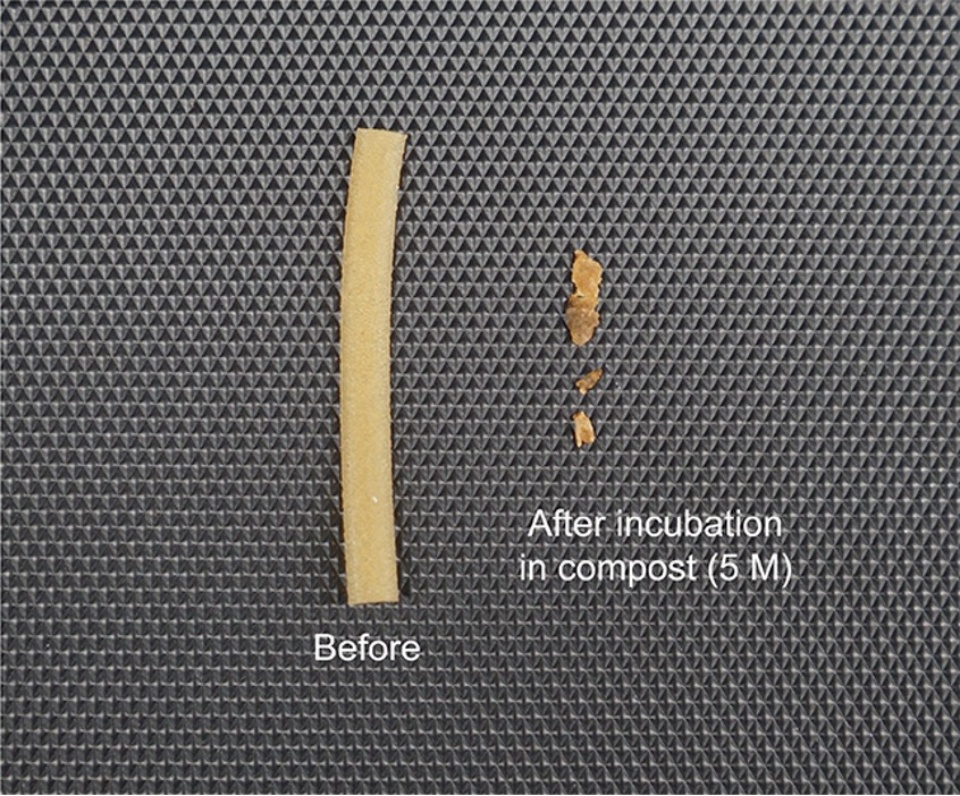A new type of self-biodegradable plastic has been developed.

Researchers have developed a new type of plastic that biodegrades due to bacterial spores living inside it. The material combines thermoplastic polyurethane (TPU) with engineered Bacillus subtilis bacteria, which can withstand the high temperatures involved in plastic production.
Remarkably, the plastic breaks down even without additional microbes, making it versatile for various environments.
Key points from the research:
1. Bacterial Adaptation to High Temperature: By exposing the spores to increasing heat levels, the bacteria eventually adapted to the 135°C (275°F) temperature required for mixing with TPU.
2. Self-Degradation: In ideal composting conditions, 90% of the plastic disappeared within five months, even without microbial presence.
3. Strength and Stretchability: The bacterial spores also made the material 30% stronger and more stretchable.
4. Recycling Challenge: TPU is widely used but lacks effective recycling methods. This biodegradable plastic could help reduce plastic waste.
5. Future Research: Further studies will explore harmless bacteria remnants, different plastic-bacteria combinations, and scaling up production.
Past efforts to find ways to degrade plastics, fast, have often sourced bacterial enzymes and fungi from soils and compost heaps where those microbes are naturally abundant. But this new material needs only the bacterial spores inside it, reawakened with some nutrients and moisture, to start breaking down.
What's more, in addition to making the plastic biodegradable, the researchers also found the bacteria spores made the material some 30 percent stronger, as well as adding to its stretchability.
With bacterial spores embedded, 90 percent of the plastic decomposed after five months.
TPU is used extensively in all kinds of products, from phone cases to car parts, but there's currently no effective way of recycling it. This breakthrough not only addresses plastic pollution but also expands the range of biologically degradable materials. As researchers continue their work, we may see more sustainable alternatives to traditional plastics in the future!
Reference: Kim HS, et al. Biocomposite thermoplastic polyurethanes containing evolved bacterial spores as living fillers to facilitate polymer disintegration. Nat Commun 15, 3338 (2024). https://doi.org/10.1038/s41467-024-47132-8.
